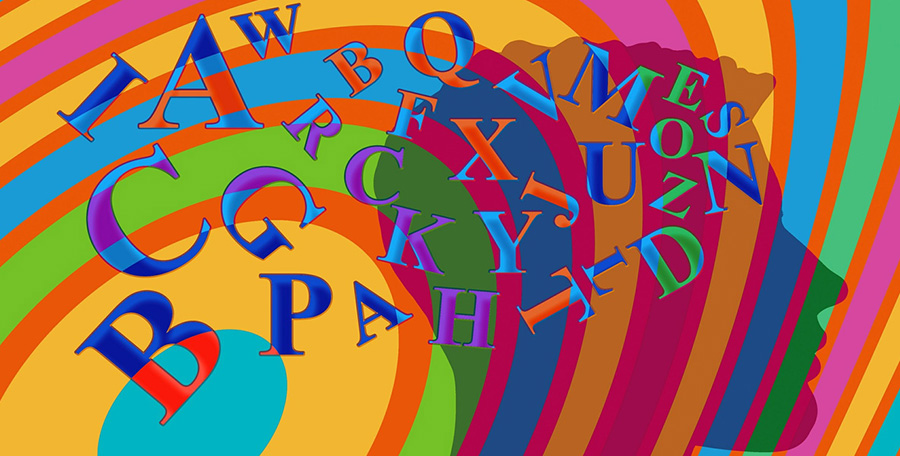Your information is confidential and will only be used to contact you about participation in one of the studies listed below. These studies are approved as research studies by The University of Texas at Dallas or The University of Texas Southwestern Medical Center Institutional Review Boards. Your personal contact information will not be released without your permission. Your health information will be kept confidential as required by law.
Clinical Trials
The lab is currently conducting trials examining novel treatments for post-traumatic stress disorder and cognitive processing problems associated with traumatic brain injury and multiple sclerosis.
Treatment Trial of Combat-Related PTSD

Research Participants Needed
- This study includes 4 evaluation visits, treatment once weekly for 12 weeks, then follow-up visits at 1 month, 6 months, and 12 months after treatment. It will take place at the Callier Center (Dallas Campus) at The University of Texas at Dallas.
- The study includes neuropsychological testing, EEG testing, and MRI scanning.
- The study may include a non-invasive brain stimulation, repetitive Transcranial Magnetic Stimulation (rTMS) and/or Cognitive Processing Therapy (CPT), a type of talk therapy.
- You will be compensated for your time.
Who can participate?
- The study is open to both male and female veterans.
- Veterans who were deployed to a combat zone from 2001 to recently.
- Veterans who have been diagnosed with or who believe they may have combat-related PTSD that is not sexual in nature.
Please Contact us for Screening or more information
Email: neurolab@utdallas.edu
Phone: 972-883-3171
Treatment Trial for Traumatic Brain Injury in Combat Veterans

Research Participants Needed
- The study is examining using non-invasive brain stimulation, called transcranial direct current stimulation (tDCS), to help people with memory difficulties from minor to moderate brain injuries.
- The study involves 11 evaluation visits over a year, and two treatment phases of 15 tDCS treatment sessions per phase. Treatment sessions are approximately 30 minutes each with 1 session per week.
- The study includes neuropsychological and EEG testing.
- Treatments and assessments will take place at the Callier Center (Dallas Campus) at The University of Texas at Dallas.
- You will be compensated for your time.
Who can participate?
- The study is open to both male and female Veterans between 18 and 75 years old.
- Veterans who have a history of a traumatic brain injury during service in military, including concussion or head injury with or without loss of consciousness.
- Veterans who have trouble finding words in conversation, difficulty remembering lists, trouble producing an object’s name, or difficulty following the conversation of others.
Please Contact us for Screening or more information
Email: neurolab.memory@utdallas.edu
Phone: 972-883-3161
Treatment of Cognitive Deficits in Multiple Sclerosis with High Definition Transcranial Direct Current Stimulation

Research Participants Needed
- The study is examining using non-invasive brain stimulation, called transcranial direct current stimulation (tDCS), to help people with multiple sclerosis and memory difficulties.
- The study includes 2 phases with a total of 23 visits and should be completed within 5-10 months depending on scheduling availability and selection for phase 2. Each phase includes 10 tDCS treatment sessions. Treatment sessions are approximately 40 minutes each with 1 session per day over a 2-5 week period preferably.
- The study includes neuropsychological and EEG testing sessions lasting approximately 3 hours and 40 minutes.
- Treatments and testing will take place at The University of Texas at Dallas.
- You will be compensated for your time.
- Participating in this study will not affect the quality of health care you receive by your treating physician. Your treatment regimen will not be altered, except in the case of stimulants even if your physician is involved in the study.
Who can participate?
- The study is open to both males and females between 18 and 65 years old.
- Persons diagnosed with relapsing-remitting multiple sclerosis.
- Persons who have trouble finding words in conversation, difficulty remembering lists, trouble producing an object’s name, or difficulty following the conversation of others.
Please Contact us for Screening or more information
Email: neurolab.memory@utdallas.edu
Phone: 972-883-3161
Theoretical Studies
Our treatment trials are based on our models and work examining semantic processing from our theoretical studies.
Comparison Group for Combat-Related PTSD Study

Research Participants Needed
- This study includes three sessions, each lasting approximately 1.5 to 2 hours.
- The study includes brief medical history assessments, memory measures, and noninvasive imaging technologies (fMRI and EEG).
- Sessions will take place at the Callier Center (Dallas Campus) at the University of Texas at Dallas and at UT Southwestern Medical Center.
- You will be compensated for your time.
Who can participate?
- The study is open to males between 18 and 60 years old.
- Must be native English speakers.
- Must not have metal implants.
- Cannot have a current or prior diagnosis of post-traumatic stress disorder, prior military training, or prior direct exposure or in-person witness to actual or threatened death, serious injury, or sexual violence.
- Must not have psychological, neurological, or medical conditions that would affect EEG or fMRI data collection. Disqualifying conditions will be reviewed during preliminary phone and in-person interviews.
Please Contact us for Screening or more information
Email: neurolab@utdallas.edu
Phone: 972-883-3171
Electrophysiological Correlates of Semantic Retrieval

Research Participants Needed
- This study investigates memories for how objects are recalled and used.
- This study involves one session lasting approximately 2 hours.
- Participants complete computerized tasks while electroencephalography data are collected. The tasks involve viewing benign words and pictures, making judgments about them, and entering the judgments through a button box. Participants also will be given some pencil and paper tasks to complete.
- Sessions will take place at the Callier Center (Richardson Campus)
Who can participate?
- The study is open to adults between 18 and 55 years old.
- Students at UTD who qualify for SONA credit.
- Must be native English speakers.
- Must not have psychological, neurological, or medical conditions that would affect EEG data collection. Disqualifying conditions will be reviewed at the time of the in-person appointment.
Please Contact us for Screening or more information
Email: neurolab.memory@utdallas.edu
Phone: 972-883-3161
Search for Electrophysiological Correlates of Semantic Retrieval or ID 1225.
